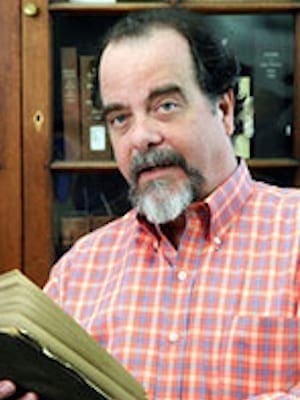Tillich was one of the giants of 20th-century Protestant theology. The bulk of his work was directed toward constructing a thoroughly modern theology that could stand before the intellectual rigors of philosophy and science that had threatened to eclipse the integrity of Christian faith.
Events early in Paul Tillich’s life, however, had a distinctly political point of reference. He was exiled from Germany in 1933 because of his political views, views that were radically shaped by Tillich’s understanding of God’s kingdom.
Friends in the United States made it possible for Tillich to continue his career as a teaching theologian with an appointment at Union Theological Seminary in New York. Arguably it was Tillich’s time in America that propelled him to the forefront of the 20th-century theological world. First at Union, and later at Harvard University and the University of Chicago, Tillich became a noted scholar, author, teacher, cultural critic and preacher of the Gospel.
But where did it begin? What shaped the direction of Tillich’s life?
Paul Tillich was born into a Lutheran family living in a small town near Berlin in 1886. From his childhood, Tillich showed interest in and understanding of Christian theology. His keen intellect allowed him entrance to the best universities in Germany.
World War I postponed Tillich’s studies in theology; he served as a chaplain in the German army. The horrors of war had a lasting effect on him. Tillich was driven to ask what would permit people to engage in the destruction and death associated with war. The war not only challenged Tillich’s understanding of God’s presence in the world, but it also sowed the seeds of wondering about the nature of faith.
Following the war, Tillich completed his studies and took his place in the German academy. His studies and teaching led him toward Christian Socialism. He published The Socialist Decision as a confession that Jesus’ teaching about the Kingdom of God and the practice of the early church, as described in Acts, most nearly approximated socialism. (Tillich refused, however, to identify the Gospel with any single political theory). Tillich insisted that the heart of Christian faith could shape political socialism with the hope of the Gospel.
With the rise of Hitler and the Nazi Party in Germany, Tillich was removed from his teaching post, and The Socialist Decision was burned publicly. Had it not been for friends in the United States, Tillich certainly would have been sent to a concentration camp, which was the fate of countless dissidents in the 1930s and 1940s.
Nearly 25 years after his expulsion from Germany, Paul Tillich published one of his best known and most frequently read works: Dynamics of Faith. Between being forced to relocate in 1933 to another continent and another language, and the publication of Dynamics of Faith in 1957, Tillich endured the horrors of another world war.
Although there was some solace in being able to reflect upon the horrors from the relative security of an American academic position, Tillich nonetheless sought to find the root of the horrors that the world had known twice in his lifetime.
Tillich wrote, “The history of faith is a permanent fight with the corruption of faith, and the conflict with reason is one of its most conspicuous symptoms.” For Tillich “the corruption of faith” is idolatry. Idolatry always is giving ultimate allegiance to something that does not deserve it.
Idolatries abound as much in our day as they did in Tillich’s. Contemporary culture pursues the idolatry of the intellect, making it possible that the defense of ideas becomes more important than the pursuit of truth. Rigid defenses of ideas, including religious, scientific and political ideas, are a source for the corruption of faith.
Passions, too, may become idols insofar as people elevate their emotional commitments to the highest level, even if that means a refusal to establish and support community. People may be so attracted to their own emotional and volitional interests that they deny the possibility of an ultimate truth that cannot be confined by emotion or will.
Perhaps the most compelling—and threatening—idol that Tillich identified was nationalism. He wrote, “If the nation is someone’s ultimate concern, the name of the nation becomes a sacred name and the nation receives divine qualities which far surpass the reality of the being and functioning of the nation.”
As a German-born theologian living in the United States during World War II, Tillich had an exceptional perspective on the devastating effects of nationalism. His perspective is worth considering at the beginning of the 21st century.
Rick Wilson is the Columbus Roberts Professor of Theology and chair of the Roberts Department of Christianity in Mercer University’s College of Liberal Arts in Macon, Ga.
Buy Wilson’s books now from Amazon.com!
Mercer Commentary on the Bible
Rhythms: Sermons for a Community of Faith and Learning

